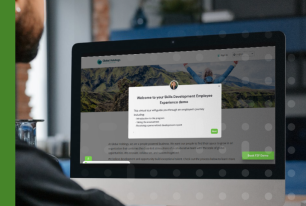Staying Ahead in 2025: Key Workforce Insights You Can’t Miss
The expectations of employees are reshaping how organizations operate. In a recent webinar we explored these shifting demands, and how to rethink your workforce strategy to position your organization for success.
Share
Current Talent Landscape Challenges
The priorities of your workforce are changing faster than ever. How employees view their career, their workplace, and what they look for in an employer, are all considerations organizations must recognize in order to effectively hire, retain and manage their talent effectively. Our webinar revealed five pivotal employee expectations that every organization must address, but what is driving these changes in the talent landscape?
- Work is changing due to AI and automation
In the next few years, 6 in 10 workers will require additional training.
- Industries are evolving and blurring traditional boundaries
By 2030, almost half of worker skills will be disrupted.
- Talent shortages and shrinking talent pools persist
75% of employers globally struggle to fill roles.
- Employees want growth and support
83% of employees prioritize improving their skills.
Turning Challenges into Opportunities
Organizations should be proactive in implementing strategies that engage and meet expectations of their workforce while also driving business improvement in the areas that matter. This means:
- Focusing on understanding employee potential and transferable skills.
- Implementing a skills-first talent strategy.
- Using data-driven insights for talent decisions.
- Balancing AI integration with nurturing human skills.
At the core of any strategy should be a focus on retaining and mobilizing internal talent. With a 50% cost saving compared to external hiring, retention and mobility is critical to stay competitive, maintaining organizational expertise, and serving the needs of your talent.
HR’s Role in Driving Change
The webinar emphasized the pivotal role HR plays in meeting these expectations. From skills development to leveraging AI responsibly, HR must lead the charge in:
- Creating transparent and fair processes.
- Equipping employees with future-ready skills.
- Building resilience and adaptability at all levels.
As workforce priorities evolve, organizations that proactively address these trends will thrive in 2025 and beyond. Whether it’s fostering a culture of transparency, leveraging AI to enhance human potential, or creating meaningful career paths, the future of work demands a strategic, employee-centered approach.
Want to dive deeper into these insights? Watch the full webinar to discover actionable strategies that can transform your workforce and give your organization a competitive edge.









